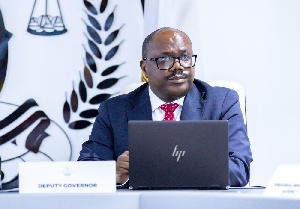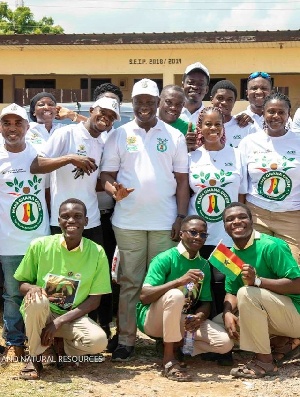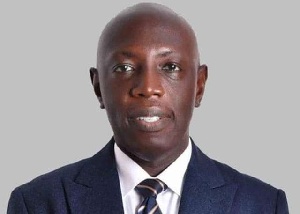Africa News of Monday, 19 May 2025
Source: www.ghanawebbers.com
Rwanda: Economy Remains Resilient Despite Global Uncertainties - Central Bank's Nsengiyumva
Last week, the National Bank of Rwanda (BNR) kept its benchmark interest rate at 6.5%. The decision was based on easing inflation and cautious global trade policy shifts. This conclusion followed a meeting of the Monetary Policy Committee (MPC) and Financial Stability Committee (FSC).
In an interview with The New Times, Deputy Governor Justin Nsengiyumva explained their data-driven approach. He noted that inflation is currently at 6.7%, close to the upper target range of 2% to 8%.
Nsengiyumva stated that Rwanda's exposure to global trade disruptions is limited. However, they are monitoring indirect effects from imports, especially from China. The Central Bank is also exploring gold as a new reserve asset for diversification.
The Central Bank analyzes global economic trends before making decisions. Current projections show global growth slowing from 3.3% to 2.8%. Sub-Saharan Africa's growth forecast has also been revised down from 4% to 3.8%.
They evaluate energy prices, which are expected to decline, along with agricultural commodity prices and inflation trends globally. Domestically, Rwanda's inflation is projected to remain around 6.5% in the coming year.
Given these factors, the Central Bank decided it was prudent to maintain the rate at 6.5%. They will continue monitoring future developments closely.
Inflation remains high at 6.7%, especially compared to developed countries targeting around 2%. However, Rwanda’s target range of 2% to 8% remains realistic.
Compared to Sub-Saharan Africa’s projected inflation of 13%, Rwanda’s position is strong at 6.5%. Although they are near the upper end of their target range, current levels do not justify a rate hike.
The global environment remains uncertain; thus, a cautious approach is preferred for now.
Regarding U.S tariffs and global trade disruptions, Rwanda has minimal direct impact due to limited exposure in the U.S market. Only about 0.2% of total exports face new tariffs.
Indirect risks are more significant since Rwanda imports around 37% of goods from China. Rising production costs in China could lead to higher import prices for Rwanda.
However, this effect has not yet materialized; impacts remain limited and mostly indirect.
Currently, the greatest external risk comes from China due to high import volumes there. Imports from Europe pose no significant threat either.
About 12% of trade occurs within the region; unless neighboring countries raise prices significantly, no major threats are anticipated.
This stability supports their inflation forecast remaining at a steady rate of 6.5%.
Despite global uncertainty affecting investor sentiment, BNR reassures that Rwanda's economic fundamentals are strong and stable.
They project economic growth at 7.1%, driven by increased investment and innovation in various sectors.
The private sector continues receiving credit while liquidity levels in financial institutions remain healthy.
Thus, both domestic and international investors can view Rwanda as a safe investment destination despite uncertainties abroad.
On considering gold as a reserve asset: this strategic move aims for diversification amid geopolitical unpredictability.
Currently holding assets like U.S Treasury bills and central bank bonds makes this addition timely.
Gold has shown consistent value over time and offers protection against political or economic shocks.
The goal includes safeguarding financial sovereignty while diversifying reserves effectively.
Gold will be sourced according to international standards with purity levels around 99.9%.
Rwanda already has a certified refinery but may also source internationally if standards are met.
The board approved this initiative; management is now implementing it.
They’re building internal capacity for managing gold reserves while consulting experienced central banks.
This initiative will happen soon as part of strengthening national reserves.
In summary: Rwanda's economy remains fundamentally strong with faster growth than regional averages.
Their well-capitalized financial sector provides confidence in supporting ongoing economic growth amidst uncertainties globally.











